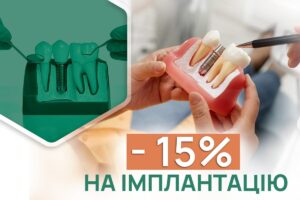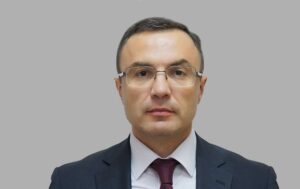
Pokito eco-brand children’s store, focusing on ages 1 to 10, will open in Ocean Mall, the company’s press service reported.
“Pokito began operations in 2023 with a clear mission: to offer Ukrainian parents high-quality, eco-friendly, and aesthetically appealing clothing for children up to 10 years old. We offer solutions that meet the daily challenges of an active childhood: comfort, practicality, durability, safe materials, and modern design,” said Pokito founder Iryna Zueva.
The 80 sq. m store, located on the entertainment floor of Ocean Mall, will feature proven European and domestic brands that have established themselves through responsible production, high quality standards, and care for children. The children’s clothing, footwear, and related products presented are united by one idea: practicality, quality, and care for the child’s comfort. Currently, the store’s portfolio consists of 15 brands. Among the bestsellers are Spanish Boboli and Cóndor, Danish Liewood and Konges Sløjd, British Mimi & Lula, and others.
The main requirements for manufacturers are a proven reputation thanks to high-quality materials, responsible production, and environmental standards, as well as safe composition and certificates confirming this. Ukrainian brands already represented include Ukrglamour (embroidered shirts, Lutsk) and Elf-Kids (headwear, Odesa).
“We want the item to be worn, not lose its appearance after two or three wash cycles, and delight parents with the fact that they made the right choice by choosing Pokito products. This builds trust and ensures that our customers will come back to us again,” Zueva said.
As for foreign brands, she emphasized that they choose those that have already won favor abroad thanks to their qualities but have not yet gained popularity in the Ukrainian market, which allows them to make a unique commercial offer to domestic customers.
Ocean Mall is a retail resort-style shopping center. It has a total area of 300,000 square meters and parking for 4,000 cars. The mall will have 800 stores and 50 restaurants. Among the largest tenants are the Silpo grocery supermarket and flagship stores of the world’s largest retailers in the fashion, sports, and home goods segments. More than 30,000 square meters of the Ocean Mall shopping center is dedicated to entertainment, including the Galaxy amusement park for the whole family and a seven-screen multiplex cinema.

Losing a tooth is not a death sentence!
Thanks to modern implant technology, restoring comfort and health has become easier than ever. And now is the perfect time to do so, as ADONIS Dentistry is offering special terms: 15% off implants!
South Korean implants Osstem, Dentium, and ISX Premium are distinguished by their quality, which significantly exceeds their cost:
To make an appointment with a dentist and schedule an implant procedure, please contact the receptionist or call the contact center at 0 800 707 707
You can also find out more about implant placement and make an appointment by calling the dental clinic at 067 314 34 38
When making an appointment, please mention that you would like to take advantage of the special offer.
ADONIS – quality medicine for adults and children.
ADONIS is a network of private medical centers for adults and children. The ADONIS private clinic was founded over 25 years ago. Its network includes seven branches in Kyiv and the surrounding region, including a rehabilitation center and a stem cell laboratory. Doctors at the clinic’s branches provide consultations in 65 medical fields. In the context of the war, ADONIS branches with surgical departments provide high-quality medical care to military personnel and civilians.

From 8 to 14 September, despite all the security challenges, DTEK Networks’ distribution system operators (DSOs) managed to fully or partially restore power supply to 79 settlements and bring electricity back to the homes of almost 63,000 families in Donetsk, Dnipropetrovsk and Kyiv regions.
“Most of the repairs last week were in Donetsk region, which remains the region with the most active hostilities. Despite the extremely difficult situation, our specialists continue to repair the power grid as soon as it becomes possible,” the operating holding company said on Monday.
From September 8 to 14, the region managed to restore power to the homes of 40,500 local residents.
In the Dnipropetrovsk region, during the same period, energy workers restored power to 21,100 local residents.
Kyiv region continues to suffer from enemy attacks. Last week, energy workers restored power to 1,100 families whose homes were left without electricity as a result of enemy attacks.
“Despite constant enemy attacks and security challenges, our specialists have been holding the energy front for 1,300 days now. Since the start of the full-scale invasion, we have restored power to more than 21.6 million families in the Kyiv, Dnipropetrovsk, Odesa, and Donetsk regions and the city of Kyiv,” said Alina Bondarenko, CEO of DTEK Networks.
DTEK Networks develops its business in electricity distribution and power grid operation in Kyiv, Kyiv, Dnipropetrovsk, Donetsk, and Odesa regions. The company’s distribution networks serve 5.1 million households and 150,000 businesses.

At its meeting on September 5, the Supervisory Board of Naftogaz of Ukraine dismissed Roman Chumak from his position as a member of the board.
According to a statement on the company’s website, Taras Pasazhko has been appointed as the new board member for the period from September 17 to December 17, 2025.
Pasazhko joined Naftogaz in June 2025 as Director of Strategy and Business Development, where he was responsible for transforming the corporate center’s operating model, reviewing the investment portfolio, implementing strategic development initiatives, and assessing the financial and economic condition of the business.
From 2018 to 2024, he was responsible for investment development, strategic planning, and financial analytics at Fozzy Group, then headed the strategy and organizational development department at Vitagro Group.
As reported, Serhiy Koretsky has headed the board of Naftogaz of Ukraine since May 2025, which also includes Oksana Volynets (director of legal and regulatory affairs of the group), Serhiy Fedorenko (commercial director), and Olena Artazei (director of human capital).
Chumak has been a member of Naftogaz’s board since the end of September 2021, and from December 2024 to the end of April 2025, he temporarily served as the company’s chairman.

The Embassy of the Republic of Uzbekistan invites interested persons to visit the international exhibition “HoReCa Expo Uzbekistan 2025”, which will be held from October 21 to 23, 2025 in Tashkent at the “Uzexpocentre”.
The exhibition will showcase modern technologies and equipment for hotels, restaurants, catering and trade.
Visitors to HoReCa Expo Uzbekistan will be offered a full range of kitchen equipment, food and beverage products, furniture, textiles, IT solutions, security systems and many other solutions.
The main theme of the exhibition “Investments in service and comfort: business solutions for HoReCa” will include sessions on the following topics:
Exhibitors and guests of the exhibition will have the opportunity to get acquainted with the latest trends in the hospitality industry, establish contacts with key market representatives, new suppliers, partners and investors within the framework of organized B2B and B2C meetings, take part in master classes and seminars by international experts, and discover the latest innovations in the HoReCa sector.
For more details and registration, please follow the link.
INFORMATION FOR BUSINESS REPRESENTATIVES
For the attention of Ukrainian business representatives interested in establishing business relations with Uzbekistan, please find below some commercial offers for the supply of Uzbek goods and promising investment projects for consideration:
Commercial offers – http://bit.ly/4k1wNkk
Investment projects – http://bit.ly/3HRnPJ4
Exhibitions and fairs – http://bit.ly/4lczZKQ
If you have any questions, you can contact the Commercial Section of the Embassy of the Republic of Uzbekistan in Ukraine at the following contact details:
e-mail: info@uzbekistan.org.ua
tel.: +380445014184, +380445015000

The Moldovan government is preparing to build a high-speed highway that will connect the border with Romania and run to Odesa. Doina Nistor, Deputy Prime Minister and Head of the Ministry of Economy of Moldova, said this at the opening of Moldova Business Week.
Currently, a feasibility study is being prepared to determine the possible route of the road and whether parts of the new route will use existing roads.
In addition, Moldova is modernizing both rail and road corridors. The feasibility study for the Ungheni-Chisinau-Odesa corridor is scheduled to be completed by the end of 2025.
The road will be of particular importance for Ukraine’s reconstruction, as it will help shorten routes, reduce logistics costs and increase the resilience of supply routes.
Once the feasibility study is completed, a final decision on the route and construction details will be made. The project will depend on funding, international support, and cooperation between the governments of Moldova and Ukraine (and possibly Romania).